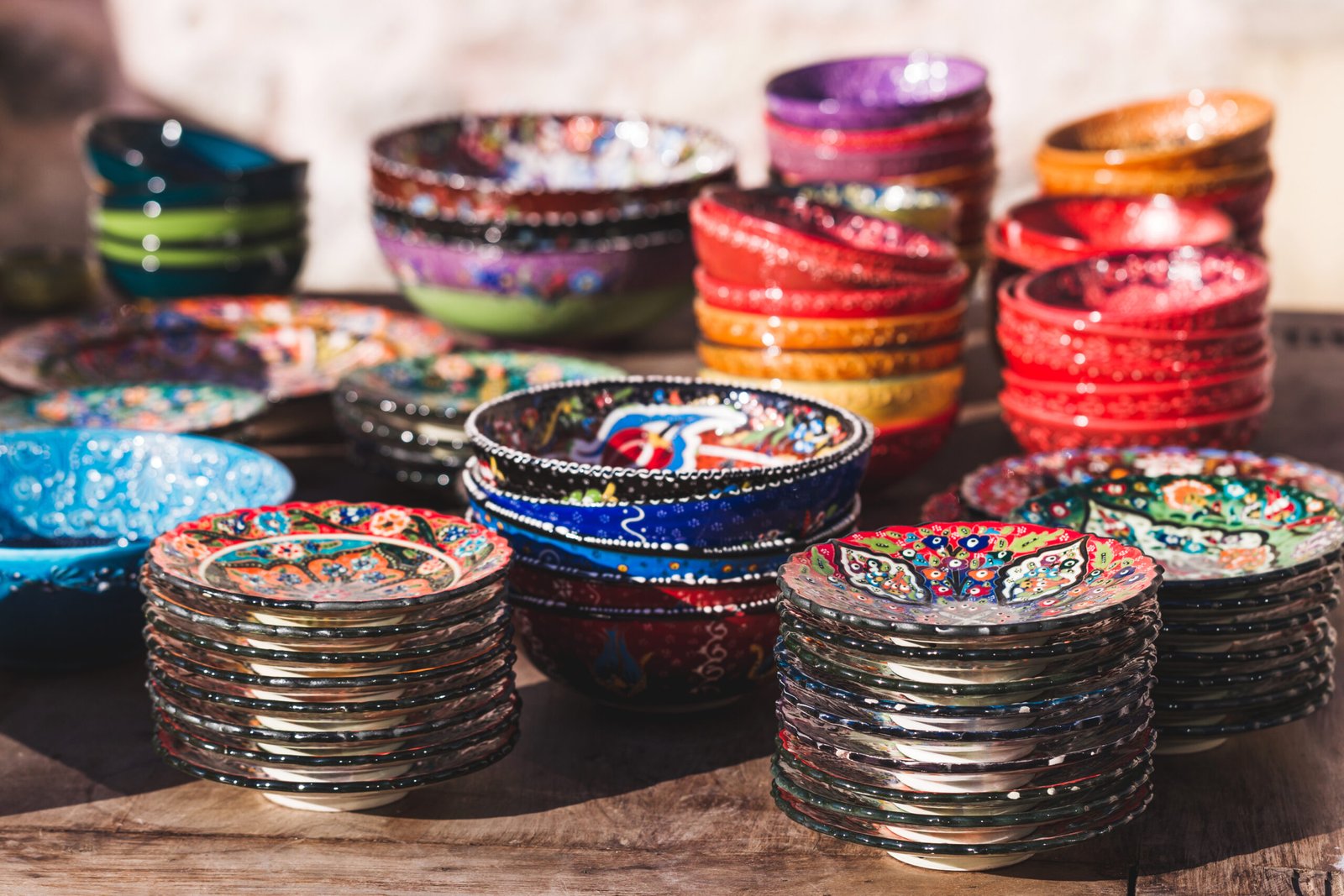Buying agent for export in india
In the increasingly interconnected global market, the demand for authentic, high-quality products from India is on the rise. From handcrafted textiles to organic agricultural goods, Indian products have captured the attention of international buyers who are keen to tap into the rich tapestry of India’s manufacturing and artisanal expertise. However, navigating the complexities of sourcing these products from a diverse and vast market like India can be daunting for foreign businesses. This is where a buying agent for export in India becomes invaluable.
A buying agent serves as a critical intermediary between international buyers and Indian suppliers. They simplify the entire export process by offering specialized services that cover everything from product sourcing and supplier vetting to quality control and logistics management. The role of a buying agent goes beyond merely connecting buyers with suppliers; they act as trusted partners who ensure that the products sourced meet the buyer’s specifications, are of high quality, and are delivered on time.
One of the unique aspects of Indian buying agents is their deep understanding of local markets, which is often not fully appreciated by international buyers. India’s manufacturing sector is incredibly diverse, with variations in quality, pricing, and reliability across different regions. A skilled buying agent leverages their local knowledge to identify the best suppliers, negotiate favorable terms, and mitigate risks associated with exporting from India. This expertise is particularly crucial in a country where the trade is still largely unorganized, and finding reliable suppliers can be challenging.
Moreover, buying agents play a pivotal role in bridging cultural and communication gaps. They understand the nuances of doing business in India, which includes navigating local business practices, understanding regional differences, and ensuring compliance with both Indian and international trade regulations. This cultural fluency ensures that international buyers can do business in India smoothly and efficiently, without the common pitfalls that might arise from miscommunication or misunderstanding of local customs.
The growing global demand for Indian products is driven by their uniqueness, craftsmanship, and the cultural stories they carry. However, tapping into this demand requires navigating a complex and often fragmented market. By acting as a bridge between Indian suppliers and international buyers, a buying agent simplifies this process, making it easier for businesses around the world to access and benefit from India’s rich production landscape. In essence, buying agents transform the complexities of exporting from India into streamlined opportunities for global trade success.
Understanding the Role and Responsibilities of an Export Buying Agent

An export buying agent is a specialized professional or entity that acts as an intermediary between international buyers and local manufacturers in a specific country, such as India. Their primary role is to facilitate the procurement and export of products, ensuring that the entire process is smooth, efficient, and meets the buyer’s expectations. In the context of sourcing products from India, a buying agent is particularly valuable due to the country’s vast and diverse manufacturing landscape, where quality, pricing, and reliability can vary significantly across regions and suppliers.
Key Responsibilities of an Export Buying Agent
The role of an export buying agent is multifaceted, encompassing several critical functions that are essential for successful international trade. These responsibilities include:
1. Product Sourcing
- Identifying Reliable Suppliers: One of the primary tasks of a buying agent is to source products that meet the buyer’s specific requirements. This involves identifying reliable suppliers who can deliver high-quality goods consistently. In a country like India, where the market is highly fragmented and often unorganized, finding the right supplier can be a challenge. An experienced buying agent leverages their local knowledge and network to connect buyers with reputable manufacturers who specialize in various products, such as cotton, silk, jute, wool, and handicrafts.
2. Quality Control
- Ensuring Product Standards: Quality control is a critical aspect of the buying agent’s role. They are responsible for ensuring that the products sourced from manufacturers meet the buyer’s quality standards and specifications. This may involve on-site inspections, lab testing, and regular communication with suppliers during the production process. Quality control is especially important in India, where variations in craftsmanship and material quality can occur due to the diverse nature of production methods across different regions.
3. Supplier Negotiations
- Securing Favorable Terms: Negotiating with suppliers is another key responsibility of an export buying agent. They work to secure the best possible terms for their clients, including pricing, payment terms, and delivery schedules. This requires a deep understanding of local business practices and the ability to build strong relationships with suppliers. A skilled buying agent uses their negotiation expertise to ensure that the buyer gets the best value for their investment without compromising on quality.
4. Logistics Management
- Coordinating Shipments: Logistics management is a crucial part of the export process. The buying agent coordinates all aspects of shipping, including packaging, transportation, customs clearance, and delivery to the buyer’s destination. This involves navigating the complexities of international shipping regulations and ensuring that all documentation is in order. By handling these logistical challenges, the buying agent ensures that the products reach the buyer on time and in good condition.
The Vital Link Between Buyers and Indian Manufacturers
Export buying agents serve as a vital link between international buyers and Indian manufacturers. Their role is not just transactional; they provide strategic value by bridging cultural, linguistic, and business practice gaps that can often complicate cross-border trade. For instance, India’s manufacturing industry, while rich in tradition and skill, can differ significantly from other countries in terms of infrastructure, labor costs, and productivity. Buying agents help navigate these differences, making it easier for international buyers to do business in India without the usual hurdles.
Moreover, buying agents provide peace of mind to buyers who may be unfamiliar with the complexities of sourcing products from India. They take on the responsibility of ensuring that every aspect of the procurement and export process is handled professionally, reducing the risk of delays, miscommunications, or substandard products. In essence, a buying agent not only simplifies the export process but also enhances the overall success of the buyer’s international trade operations.
Strategies for Identifying and Connecting with Potential Buyers for Indian Products
Finding and connecting with potential buyers is a crucial step in the success of exporting Indian products. Whether you’re dealing in textiles, handicrafts, or other goods, understanding the market and reaching the right audience is essential. Here are some effective strategies for identifying and connecting with buyers:
1. Conduct Comprehensive Market Research
- Understanding Demand: The first step in identifying potential buyers is to understand where the demand for your products lies. This involves researching global markets to determine which regions or countries have a high demand for the types of Indian products you are offering. For example, there is significant demand for Indian textiles in Europe and North America, while Indian spices and agricultural products are sought after in the Middle East.
- Identifying Buyer Profiles: Define the profile of your ideal buyers, including their business type (retailers, wholesalers, online marketplaces), purchase volume, and product preferences. This targeted approach allows you to focus your efforts on the most promising markets and buyers.
2. Leverage Networking Opportunities
- Building Relationships: Networking is a powerful tool in connecting with potential buyers. Attend industry events, trade shows, and business conferences where you can meet potential buyers face-to-face. These events provide opportunities to showcase your products, understand buyer needs, and establish personal connections that can lead to long-term business relationships.
- Utilizing Referrals: Word-of-mouth and referrals from existing clients or industry contacts can be invaluable. Encourage satisfied buyers to recommend your products to their peers or industry networks. In the close-knit world of international trade, a strong reputation can significantly expand your buyer base.
3. Participate in Trade Shows and Exhibitions
- Showcasing Your Products: Trade shows and exhibitions, both in India and internationally, are excellent venues for connecting with potential buyers. These events allow you to present your products to a broad audience, engage directly with interested buyers, and gather real-time feedback on your offerings.
- Gaining Market Insights: Beyond selling, trade shows provide insights into market trends, competitor strategies, and buyer expectations. They offer a unique opportunity to see how your products stack up against the competition and where you might need to innovate or improve.
4. Utilize Online Platforms
- B2B Platforms: Online B2B marketplaces like Alibaba, IndiaMART, and GlobalSources are essential tools for reaching international buyers. These platforms allow you to list your products, connect with potential buyers, and manage inquiries efficiently.
- Social Media and Digital Marketing: Leveraging social media platforms like LinkedIn, Facebook, and Instagram can help you connect with potential buyers by showcasing your products and sharing success stories. Digital marketing campaigns, including targeted ads and email marketing, can also help you reach specific buyer segments.
5. The Role of Buying Agents in Connecting with Buyers
- Local Knowledge and Networks: Buying agents in India play a crucial role in identifying and connecting with potential buyers. They have an in-depth understanding of local markets and strong networks that can be leveraged to find reliable buyers. Their ability to navigate cultural nuances and business practices in India makes them invaluable in establishing trust and fostering relationships with buyers.
Facilitating Introductions: Buying agents can introduce you to potential buyers who are already in their network, significantly reducing the time and effort required to build these connections from scratch. Their local expertise also helps in identifying buyers who are the best fit for your products, ensuring a more successful and sustainable business relationship.
Analyzing India's Most Commonly Exported Products and the Role of Buying Agents

India is a powerhouse when it comes to exporting a diverse range of products, each with its unique appeal and cultural significance. The country’s rich heritage, skilled craftsmanship, and abundant natural resources have positioned it as a leading exporter of various goods that are in high demand globally. In this section, we’ll explore the types of products most commonly exported from India—textiles, handicrafts, and agricultural goods—and examine why these products are sought after by international buyers. We’ll also discuss how buying agents play a crucial role in sourcing high-quality items and offer tips on selecting the right agent for your needs.
Key Export Products from India
- Textiles
- Global Demand: Indian textiles, including cotton, silk, and woolen products, are renowned for their quality, durability, and intricate designs. From the luxurious feel of Pashmina shawls to the vibrant colors of handwoven sarees, Indian textiles are appreciated worldwide for their cultural richness and craftsmanship. The diversity in textile production across different regions of India, such as the Banarasi silk from Varanasi or the block-printed fabrics from Rajasthan, caters to a broad spectrum of tastes and preferences.
- Why in Demand: The global demand for Indian textiles is driven by their unique patterns, traditional weaving techniques, and the use of natural fibers, which are increasingly preferred by consumers seeking sustainable and ethically produced products. The rising trend of eco-conscious fashion has further boosted the appeal of Indian textiles, making them a staple in both luxury and everyday markets.
- Handicrafts
- Global Demand: Indian handicrafts, such as pottery, wooden carvings, and metalware, are celebrated for their artistic value and the stories they tell of India’s rich cultural heritage. Handicrafts like Madhubani paintings, Warli art, and terracotta sculptures are not only decorative but also carry deep symbolic meanings, making them highly desirable among collectors and interior decorators worldwide.
- Why in Demand: The demand for Indian handicrafts is largely fueled by a global appreciation for handmade, culturally significant items. In an era of mass production, consumers are increasingly drawn to unique, handcrafted products that offer authenticity and a personal connection to the artisan’s culture and traditions. This demand is further amplified by the growing interest in sustainable living, as many Indian handicrafts are made using eco-friendly materials and methods.
- Agricultural Goods
- Global Demand: India is a leading exporter of agricultural products, including spices, tea, rice, and pulses. Indian spices, such as turmeric, cardamom, and black pepper, are particularly sought after for their superior quality and potent flavors. Similarly, India’s Basmati rice is prized in international markets for its distinct aroma and long grains.
- Why in Demand: The demand for Indian agricultural goods is driven by their quality, flavor, and the country’s long-standing reputation as a producer of premium spices and rice. Additionally, the growing global trend towards organic and non-GMO products has increased the demand for Indian organic produce, which is known for its purity and adherence to traditional farming methods.
How Buying Agents Facilitate Sourcing
Buying agents are instrumental in ensuring that international buyers can access the best quality products from reliable suppliers. Their role goes beyond simple procurement; they are strategic partners who help navigate the complexities of sourcing from a diverse and often fragmented market like India.
- Expertise and Local Knowledge: A specialized buying agent brings deep knowledge of the local market, including an understanding of regional production strengths and the reputation of various suppliers. For example, a buying agent with expertise in textiles might have strong connections with weavers in Varanasi or Jaipur, ensuring that buyers receive the highest quality fabrics at competitive prices.
- Supplier Network: A well-connected buying agent has an extensive network of trusted suppliers, which is crucial in a market like India where reliability can vary significantly. They can vet suppliers, ensuring that they adhere to quality standards, ethical practices, and timely delivery schedules.
- Quality Assurance: Quality control is a major concern when sourcing products from India, given the variability in production methods. A buying agent can oversee the production process, conduct inspections, and ensure that the final products meet the buyer’s specifications. This is particularly important for items like textiles and handicrafts, where craftsmanship is key to the product’s value.
- Negotiation Skills: An experienced buying agent can negotiate favorable terms with suppliers, including pricing, payment conditions, and delivery timelines. Their understanding of local business practices and cultural nuances allows them to secure deals that benefit both the buyer and the supplier, ensuring a fair and sustainable trading relationship.
Tips for Selecting the Right Buying Agent
- Experience and Specialization: Look for a buying agent who has extensive experience in your product category. For instance, if you are sourcing textiles, an agent with a background in the textile industry will be more adept at identifying top-quality materials and reliable suppliers.
- Reputation and References: Research the agent’s reputation in the market. Ask for references from previous clients and seek testimonials that can attest to their reliability, professionalism, and success in facilitating exports.
- Network and Connections: An agent with a strong local network can offer better sourcing options and quicker problem resolution. Their connections in the industry can also provide you with insights into market trends and emerging opportunities.
Understanding of the Local Market: Ensure that the buying agent has a deep understanding of the regional variations in production and supplier reliability across India. This knowledge is critical in making informed decisions about where and from whom to source your products.
The Vital Role of Buying Agents in India’s Export Process
Buying agents play an indispensable role in the export process from India, serving as the bridge between international buyers and the diverse, often complex, Indian market. The importance of buying agents cannot be overstated—they are the key facilitators who ensure that the entire export process is seamless, efficient, and successful.
India’s manufacturing landscape is vast and varied, with each region offering unique products and craftsmanship. However, this diversity also brings challenges, such as variations in quality, pricing, and reliability among suppliers. Navigating this complexity requires deep local knowledge, strong industry connections, and a thorough understanding of regional nuances. This is where buying agents come in, offering their expertise to help buyers make informed decisions.
A skilled buying agent brings several critical benefits to the export process:
- Expert Navigation of the Indian Market: Buying agents have a comprehensive understanding of the local market, including which regions specialize in particular products and which suppliers are most reliable. They help buyers avoid common pitfalls and ensure that the products sourced meet the required standards.
- Quality Assurance: Ensuring that products meet international quality standards is a significant concern in global trade. Buying agents conduct thorough inspections and oversee production processes to guarantee that the final products are of the highest quality.
- Efficient Logistics Management: From coordinating shipments to handling customs documentation, buying agents manage the logistics involved in exporting goods from India. This ensures that products are delivered on time and in perfect condition, reducing the risk of delays or complications.
- Cost-Effective Procurement: Through skilled negotiation and a deep understanding of local business practices, buying agents secure favorable terms for their clients. This not only ensures competitive pricing but also helps in maintaining good relationships with suppliers, which is crucial for long-term success.
As highlighted in the article from Jingsourcing, Indian buying agents offer critical services such as finding reliable suppliers, quality control, and logistics management, which are essential for successful international trade. They are particularly valuable in a market like India, where “the trade is still largely unorganized, and finding reliable suppliers can be challenging.
In conclusion, buying agents are more than just intermediaries; they are strategic partners who bring immense value to the export process. By leveraging their expertise, network, and local knowledge, they enable international buyers to tap into the rich potential of India’s manufacturing sector with confidence and efficiency. For any business looking to source products from India, collaborating with a trusted buying agent is not just beneficial—it’s essential for success in the global market.











